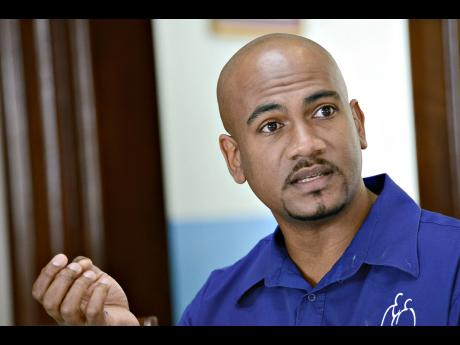FIXING HEALTH: Are we ready for medical tourism?
Politicians and policymakers have always sought mega projects to solve our economic problems. One such saviour of our economy is the much-touted medical-tourism industry. While the attractiveness of this US$60 billion a year industry is indisputable, there needs to be more analysis before it is sold to the public as the means by which Jamaica will be the next Singapore.
Medical tourism involves patients travelling internationally with the intention of obtaining medical care. Common medical needs for travel include wellness and recuperation, surgeries, reproductive treatments, and new treatments not yet approved in the country of origin.
Millions of patients travel each year for treatment and spend 10 times as much as regular vacation travellers.
Benefits of medical tourism include improvement of the health-care infrastructure, and employment opportunities for health-care workers and those in support areas such as transportation and accommodation.
However, even in countries with established medical-tourism sectors, there are downsides.
As they are better paid than in the government service, health-care workers gravitate towards health-tourism facilities. This is similar to what happens presently where international organisations and governments poach our highly specialised workers, leaving a chronic shortage locally.
The local patients may, therefore, not necessarily be better off, as seen in India, where, despite cutting-edge procedures offered to tourists, there are still high maternal and infant mortality rates, and persons are still dying from infectious diseases and other preventable causes at an alarming rate.
FOREIGN OWNED
The local health-care facilities being developed for the purpose of medical tourism are primarily foreign owned. As with our largest industries, such as telecommunications and banking, the lion's share of the profits are remitted to the investors. For medical tourism to be effective in growing the economy, the Jamaican people must be the owners.
Other medical-tourism destinations have benefitted significantly from nationals owning and operating the businesses. We need to take the example of the India-based Apollo group to develop home-grown medical-care providers. Only then will the billions of dollars made at these facilities be available to grow the local economy.
These downsides to medical tourism should be addressed, as the upsides to the development of the industry are significant.
The introduction of a non-FDA approved treatment for prostate cancer in The Bahamas saw the arrival of many patients. There were significant benefits, as patients spent more for their treatment than the traditional visitor, and the accompanying relatives also contributed to the economy through tourist activities. The Bahamians have built on this experience, and new procedures are being introduced.
Despite its deficiencies, the Jamaican health sector is a robust one. We get more value for money than many developed countries. Although present conditions in the public-health facilities are far from satisfactory, our life expectancy rivals First-World countries, and we do not have the issues with infectious diseases and poor sanitation that plague other developing countries. Jamaican patients can have highly specialised surgical procedures done locally, and only in rare cases are forced to seek treatment overseas.
Jamaica represents a near-shore, English-speaking, middle-income country that is proving to be very attractive for the Business Processing Outsourcing (BPO) industry.
These unique advantages, plus the attractiveness of the island as a tourist spot, should make the transition to a medical-tourism destination quite easy. We can undoubtedly provide the care needed at the same level and at a cheaper rate than target countries.
However, with all of the efforts at developing medical tourism, we have not come close to tapping our true potential. Why is this so?
COSTS TOO HIGH
The cost of private health care is simply too high for us to compete with our neighbours offering medical tourism. For instance, I have received enquiries from Americans about the cost of weight-loss surgery, only to be told point blank that it costs way more than in Mexico.
We have to bring down the cost of private health care before we can seriously talk about medical tourism.
Training in Brazil exposed me to a private health-care sector that readily attracted foreigners. Highly trained health-care workers staffed these clean, modern facilities. Most surprising to me was that the costs were much cheaper than in Jamaica.
How could health care cost less in an emerging economy than in a Third-World country? The health-care facilities in Latin American countries operate on small margins but remain very profitable because of the high volume of patients. Their overheads are low, so the cost to the patient is considerably less than ours.
The cost of doing business in Jamaica is just too high. Overheads are high as a result of various factors, including the cost of electricity and the cost of equipment driven up by import duties and corporate taxes. With these high overheads, the private facilities have no choice but to pass on these high costs to the patients.
With the high cost of private health care in Jamaica, the average Jamaican cannot access hospital care outside of the public system. This high cost, compared to our competitors, is the primary reason why we are not welcoming North American patients, even though our costs are less than their home countries.
We need to stop focusing on costs in First-World countries, and instead look at what our competitors are charging. The cost of health care needs to be reduced to not only develop the Jamaican medical-tourism industry, but to allow the average Jamaican to access care at private facilities, allowing the public health-system to primarily be a socialist entity that provides free health care for the financially vulnerable among us.
Decreasing the patient load on the public-health facilities, while providing quality health care for locals and foreigners, is the biggest step we can take towards fixing health.


